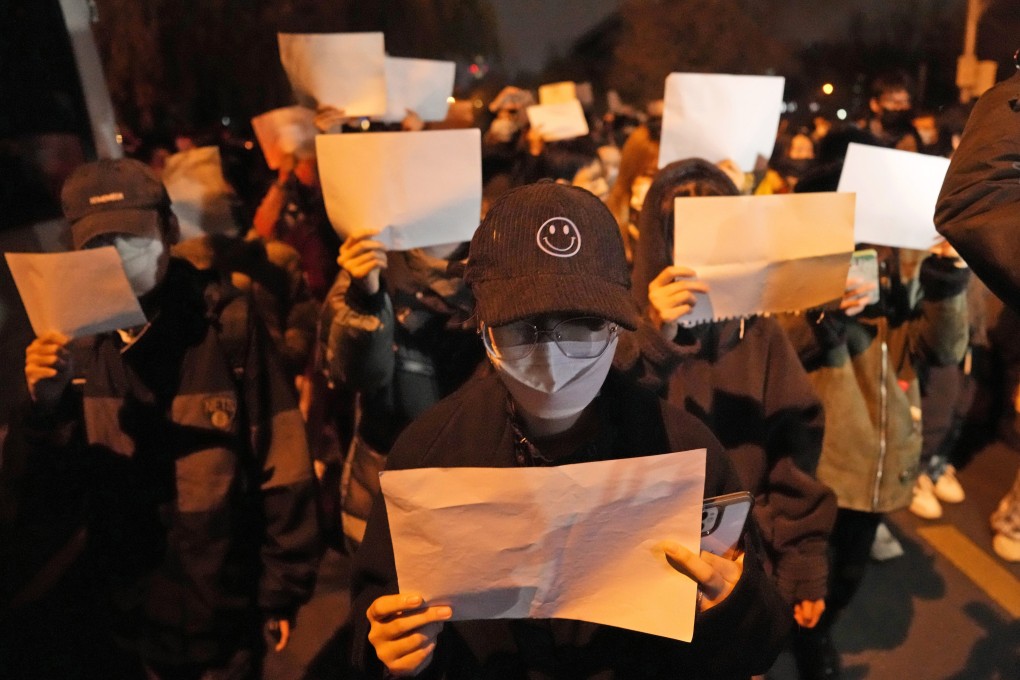Advertisement
China’s zero-Covid protests spark some easing but Xi Jinping still not open to Western vaccines, US says
- Some Chinese cities are loosening the rules even though cases are rising, after zero-Covid triggered economic slowdown and widespread public unrest
- Despite the social and economic impact of the virus, Xi ‘is unwilling to take a better vaccine from the West,’ US intelligence chief says
Reading Time:2 minutes
Why you can trust SCMP
51

Although China’s daily Covid-19 cases are near all-time highs, some cities are taking steps to loosen testing and quarantine rules after President Xi Jinping’s zero-Covid policy triggered a sharp economic slowdown and public unrest across several major cities.
While the recent protests are not a threat to Communist Party rule, they could affect Xi’s personal standing, US Director of National Intelligence Avril Haines said.
Xi has made the zero-Covid approach of mass testing, strict lockdowns and travel control the cornerstone of his anti-pandemic policy, as Beijing played up the narrative that it has helped save lives while millions have perished in countries like the US.
Advertisement
But the policy has exacted a major toll on the economy and caused widespread public misery, such as food shortages and fatal medical delays, frustrations that sparked huge protests across major cities less than 10 days ago.
However, despite the challenges China is facing with Covid-19, as it battles what could become its most severe outbreak, Xi remains unwilling to accept Western vaccines.
Haines, speaking at the annual Reagan National Defence Forum in California, said that despite the social and economic impact of the virus, Xi “is unwilling to take a better vaccine from the West, and is instead relying on a vaccine in China that’s just not nearly as effective against Omicron.”
Advertisement
Advertisement
Select Voice
Choose your listening speed
Get through articles 2x faster
1.25x
250 WPM
Slow
Average
Fast
1.25x
